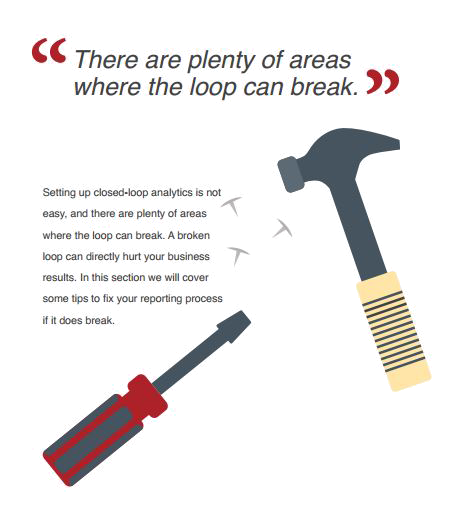Turn Skeptical Clients (& Bosses) Into Insight Email Advocates
If you’ve made it this far in our blog series, you’re probably at the point now where you want to integrate insight emails into your inbound...

 When planning your marketing strategy, know the
When planning your marketing strategy, know the
difference between your "is's and ought's" ![]()
A wise old man once said that we need to know the difference between our "is's and ought's." It's true for a lot of things, and it's definitely true for marketing strategy.
Strategic planning of your marketing campaigns begins by comparing "where you currently are" to "where you ought to be."
Some call it gap analysis. Others call it needs assessment. What you call it is not important.
Until you understand where you are compared to where you ought or want to be, you cannot determine what resources you need and what actions must be taken to bridge the gap.
There are two dangers to your business that can be avoided by performing a proper needs assessment. They are the "Flying Leap of Death" trap and the "We Can't Get There From Here" trap.
On the one hand, failing to adequately assess your marketing situation and proceeding without a plan in place is like trying to leap across a giant chasm unscathed (like that guy in the image above). It might work, but you shouldn't count on it.
On the other hand, performing only a needs assessment with no forward thinking as to how to use the results of that assessment is akin to looking at a road map and deciding that your destination is impossible to reach.
The reality is that with forethought and strategic planning, you can get to where you need to go with your marketing strategy.
So how do you make it happen?
A needs assessment must be a systematic process of determining the current condition of your business, your goals, and your desired future condition. Each of the three elements is needed for a useful gap analysis.
Identify the things that you want to achieve with your marketing strategy. According to the article "How to Write a Gap Analysis Report," solid goals meet the following criteria:
Defining your goals in this specific way includes coming to an agreement about what success looks like for your marketing campaigns. You should ask questions like: How will you measure the ROI of this campaign? Can you capture the metrics you need to measure progress toward this goal?
Once your goals are spelled out, you have defined your desired future condition.
Mindtools' article "Gap Analysis - Identifying What Needs to Be Done in a Project" provides the following questions to help you assess your current situation:
Recent data from your company can help you assess your current situation in terms of how your marketing strategy is working right now. Historical data can provide context that gives you a more nuanced understanding of your marketing metrics over time.
Once you understand all the in's and out's of what has happened and what is happening, it is time to move on to step three.
Just as your GPS needs to know where you are and where you are headed in order to calculate your best route, the first two steps of your needs assessment indicate your starting and destination points.
But what about the route?

An experienced inbound marketing agency
can serve as your marketing GPS. ![]()
This is where working with a professional inbound marketing agency can help. By getting a clear understanding of your business, its goals, concerns, and desired outcomes, an agency like Inbound 281 can be your marketing GPS.
If you are interested in learning more about how automation can help you to create and deliver the personalized, highly targeted messages that convert prospects into customers, get your free copy of our eGuide: Mastering Marketing Automation.
Make sure to connect with us on LinkedIn to get valuable insight on the latest news in marketing and website design. Follow us here:

If you’ve made it this far in our blog series, you’re probably at the point now where you want to integrate insight emails into your inbound...

Closed-loop marketing isn’t something that can be set up and left on auto-pilot, warns Mark Parent in the new Ebook. “An Introduction To Closed-Loop...

Gone are the days when you have to sacrifice quality for quantity within your innovative marketing mix. With the help of marketing automation, now...